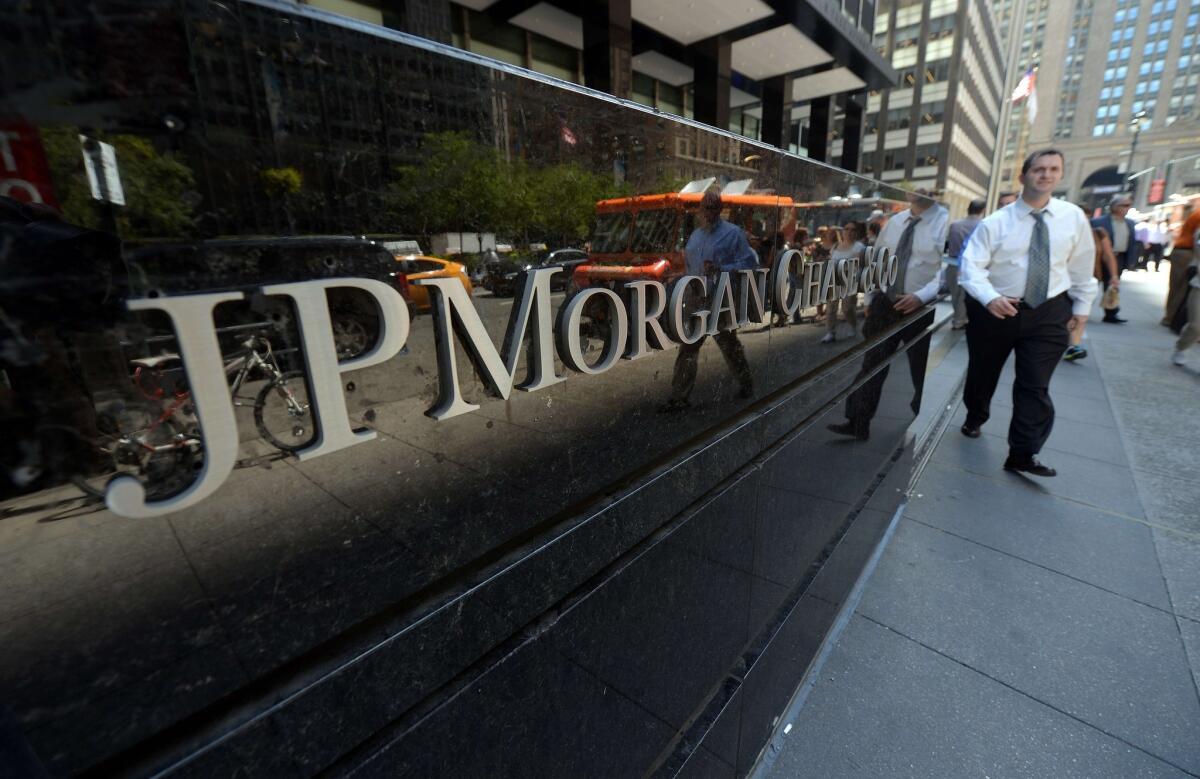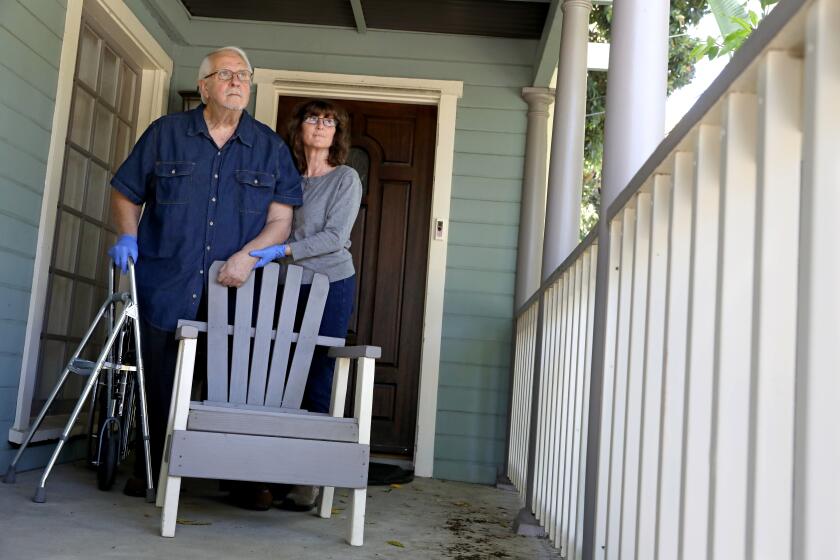JPMorgan’s small-business coronavirus loans went to its biggest customers

- Share via
JPMorgan Chase & Co. provided loans to virtually all of its commercial banking customers that sought financing through the small-business relief program, while the lender’s smallest customers were almost entirely shut out through another channel, according to data disclosed by the bank.
About 5,500 larger, and sometimes more sophisticated, customers of JPMorgan’s commercial banking business applied for funding through the Paycheck Protection Program, part of the $2-trillion CARES Act that Congress adopted in late March. Nearly all of them got loans, according to the bank’s data.
More than 300,000 customers of JPMorgan’s business banking unit, which serves smaller firms, applied for loans. About 18,000 were funded, for a 6% success rate.
JPMorgan made a total of $14 billion in small-business loans through the federal program.
The data reveal that, in the race to get a loan in the first-come, first-served program, larger businesses had a leg up over smaller ones — even when applying through the same bank.
Independent businesses struggle to survive as federal government fails to deliver payroll protection loans.
Restaurant chains, including Shake Shack Inc., Ruth’s Hospitality Group Inc., which operates Ruth’s Chris Steak House, and sandwich chain Potbelly Corp., received loans through JPMorgan. On Monday, Shake Shack said it was returning the money.
JPMorgan said it ultimately provided 26,500 loans to small businesses through both its commercial and small-business units. More than 60% of those went to companies with fewer than 25 employees, the bank said.
But its commercial bank, with fewer clients, was able to process applications faster, said a person familiar with the matter. Many larger companies also had lawyers and accountants filling out their paperwork, which helped them get applications completed and filed with JPMorgan early.
Many smaller customers, on the other hand, were left trying to input the documents themselves, the person said.
“We prioritized getting these loans to as many small businesses as possible,” said JPMorgan spokeswoman Anne Pace. “We helped our clients as they came to us and stand fully prepared to help tens of thousands more small businesses apply as soon as additional funds become available.”
In an email to clients, a JPMorgan executive said the bank unit that serves smaller firms received applications from more than 75,000 clients in the program’s first hour on April 3, and that the number grew significantly the following days.
“We had more than 2,000 Chase employees work over that weekend to review these forms, contact as many people as possible, and help position them to complete their application,” said Jennifer Roberts, chief executive of the unit, Chase Business Banking.
The $349-billion rescue program, which offered forgivable loans of as much as $10 million to companies with up to 500 employees, got off to a rocky start. Lenders make the actual loans but the Small Business Administration, which guarantees the loans, must first clear each company.
Lenders were overwhelmed with applications, the SBA’s computer system froze intermittently and the program ran out of money in 13 days. To address the shortfall, lawmakers and the White House are negotiating adding another $320 billion for the effort.
While 1.6 million small businesses were ultimately approved, with the average loan at $206,000, many owners say they were unfairly shut out of an effort that was intended to provide a lifeline to mom-and-pop operations reeling from the pandemic. Some larger, publicly traded firms, meanwhile, received large sums.
At least 29 publicly traded companies have disclosed receiving loans through JPMorgan from the PPP. Those loans totaled about $141 million and averaged about $5 million each, according to regulatory filings. They included a $20-million loan to Ruth’s Hospitality and a $10-million loan to Potbelly.
The bank is among four lenders now facing accusations in a lawsuit that they prioritized the biggest loans in order to earn higher fees. Banks earned origination fees of 5% on loans of up to $350,000; 3% on loans between $350,000 and $2 million; and 1% on loans between $2 million and $10 million. That means they earned $17,500 for processing a $350,000 loan, compared with $100,000 for a $10-million loan.
More to Read
Inside the business of entertainment
The Wide Shot brings you news, analysis and insights on everything from streaming wars to production — and what it all means for the future.
You may occasionally receive promotional content from the Los Angeles Times.











